Inspired By… Profile of Another School
Julie Temperley
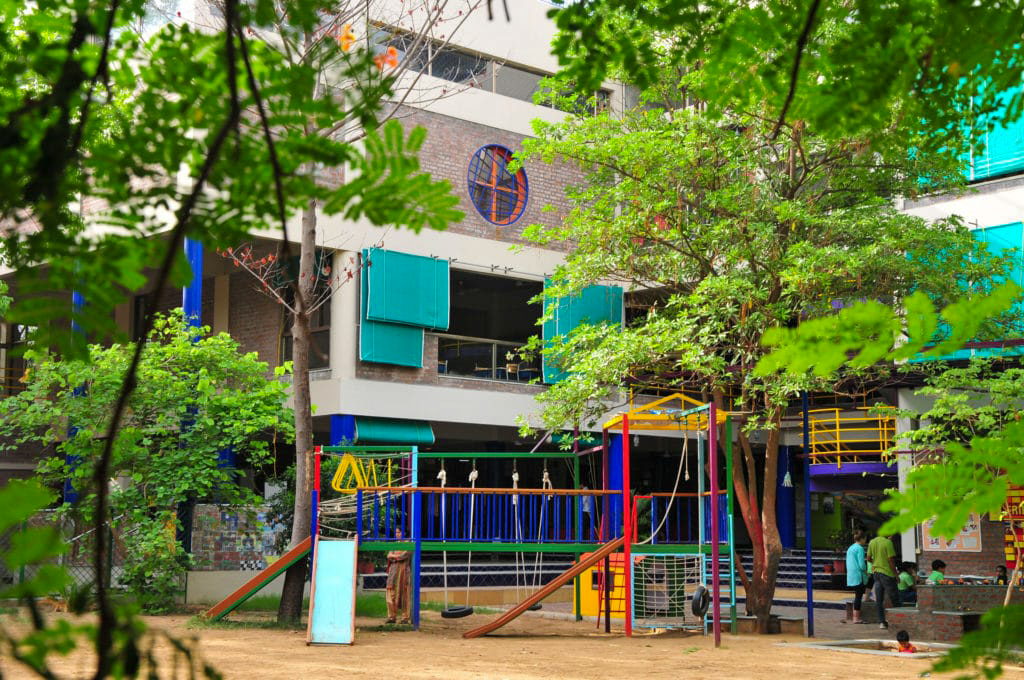
In each issue of The Bridge, we will be sharing stories from schools around the world where exciting new learning opportunities are inspiring and challenging us. In this issue, we take a look at Riverside School in India, which was created using a human-centred design approach and where exploring identity and what it means to be part of a diverse community helps learners develop a strong sense of self and agency.
This story is just one of many you can find in FutureSchool: How schools around the world are applying learning design principles for a new era, by Valerie Hannon with Julie Temperley, Routledge, 2022.
Riverside School, Ahmedabad, India
Kiran Bir Sethi, the founder of Riverside School in Ahmedabad, India, came into education with a designer’s mindset, determined to create an engaging and empowering learning environment for her young son, who was becoming disillusioned with school at an early age. Drawing on her design training, Sethi’s focus in conceiving her school was not: What is the curriculum and how should we teach it? but: Who are the learners and what do they need to learn?
A focus on learners — their strengths, interests and needs — led Sethi inevitably to contemplate the implications for learning of the unique challenges and opportunities that each learner faces and the diversity of experience of learners and their communities which follow them into school. Here too, Sethi drew on her own experience of arriving at design school where, for the first time, she met people whose lives and perspectives were vastly different from her own.
I was awed by the sheer diversity in religion, culture, demographics and sexuality on the campus. It was here that I began to believe in inclusion as a right and not the privilege of a select few. — Kiran Bir Sethi, 2018
Through their student admissions and teacher recruitment policies, and over a period of ten years, Riverside explicitly set out to create a ‘mini India’ amongst the 390 students in their school, ensuring representation from all communities, demographics, religious affiliations and gender and welcoming learners with special needs ‘beyond any labels and biases’.
With diversity and inclusion so prominent in the school’s design and ethos it is perhaps unsurprising that identity soon became an explicit focus for learning, and Riverside’s commitment to inclusion found expression in their Inclusive Campus Programme (ICP).
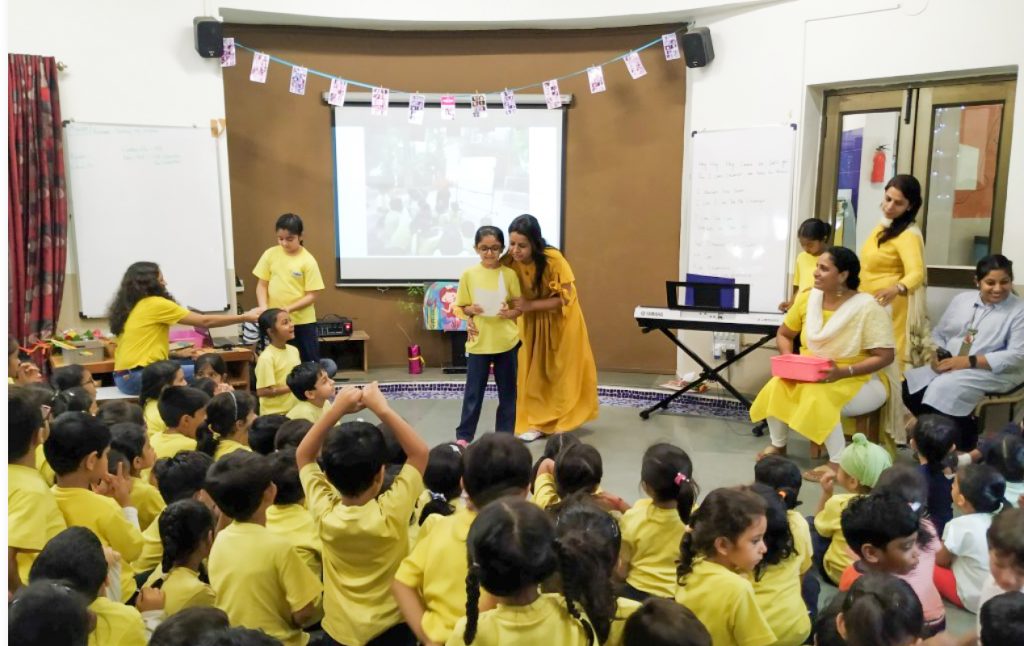
Awareness, compassion and engagement are at the heart of the Inclusive Campus Programme.
Centring on nine aspects of identity, the ICP is made up of a range of workshops and experiences that continue throughout a student’s time at Riverside. The nine aspects, categorised under the headings of mind, body and heritage are:
- Mind — personality, gender and orientation
- Body — ability, age and appearance
- Heritage — religions and beliefs, race and ethnicity, socioeconomic class
Awareness, compassion and engagement are at the heart of the ICP. From stories that challenge gender stereotypes for younger children to intentional conversations between a gay teacher and older students; from a collaborative redesign by students of school spaces to accommodate a wheelchair when a disabled student joined the school to regular visits to heritage sites and culturally significant spaces around the city, the ICP explicitly and systematically engages students with alternative perspectives and experiences to challenge them to reflect deeply on their own identity and the role they might play in the world.
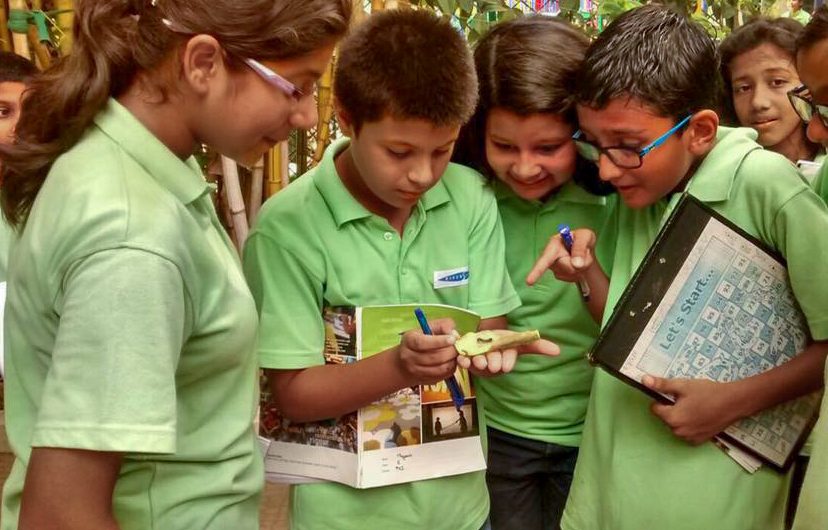
Learners are encouraged to think of themselves as individuals in the world; agents with skills and purpose and a will to change things for the better for others.
As learners progress through the school, the ethos of inclusion and the exploration of identity expands beyond the school walls and out into the real world, to support learners to contemplate what other people’s lives are like and how the privilege — not the entitlement — of an education might equip them as Riverside graduates to help others. Learners are encouraged to think of themselves as individuals in the world; agents with skills and purpose and a will to change things for the better for others. “Doing good and doing well” is the Riverside mantra.
Learners stay in rural communities where the relative luxury of city living — sanitation, technology, transport — is missing from everyday life. They immerse themselves in alternative realities, learning how agricultural workers and craftspeople make a living. And how a life without material wealth might be enriching in other ways.
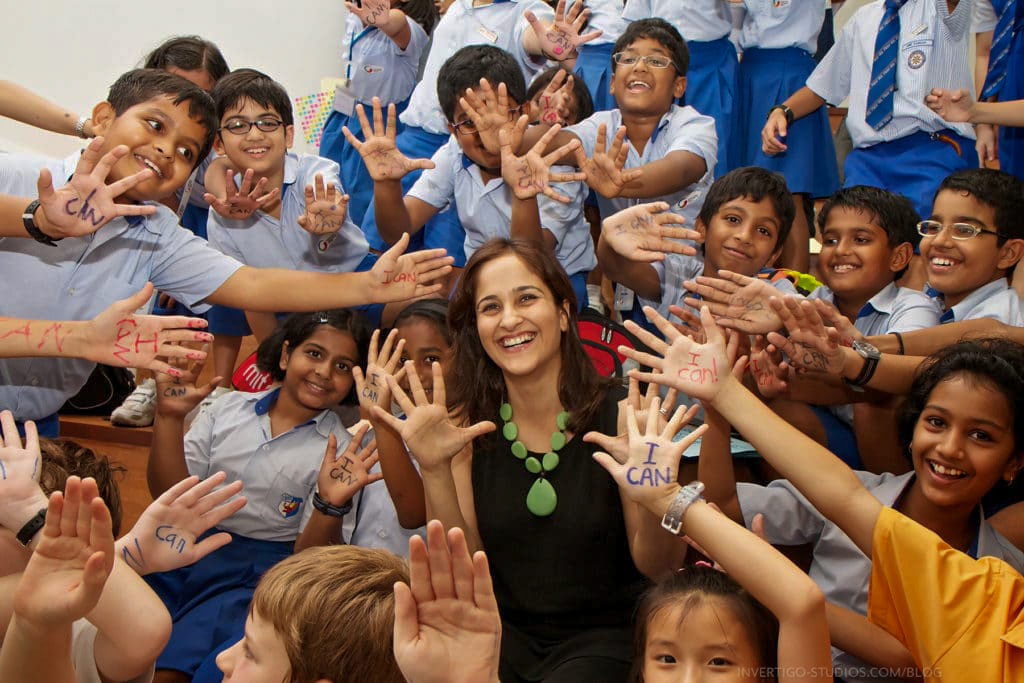
In their final year, learners assume responsibility for leading a real and urgent change, becoming the CEO of a changemaker programme to make a positive difference in people’s lives. This leadership development is the final stage in growing their confidence and humility to take on ethical and practical challenges as adults and to become a force for good in the world.
None of the focus and time spent on identity comes at the expense of academic excellence. Riverside students have consistently outperformed the top 10 schools in maths, science and English and the school has been ranked the No.1 day school in Gujarat for several years.
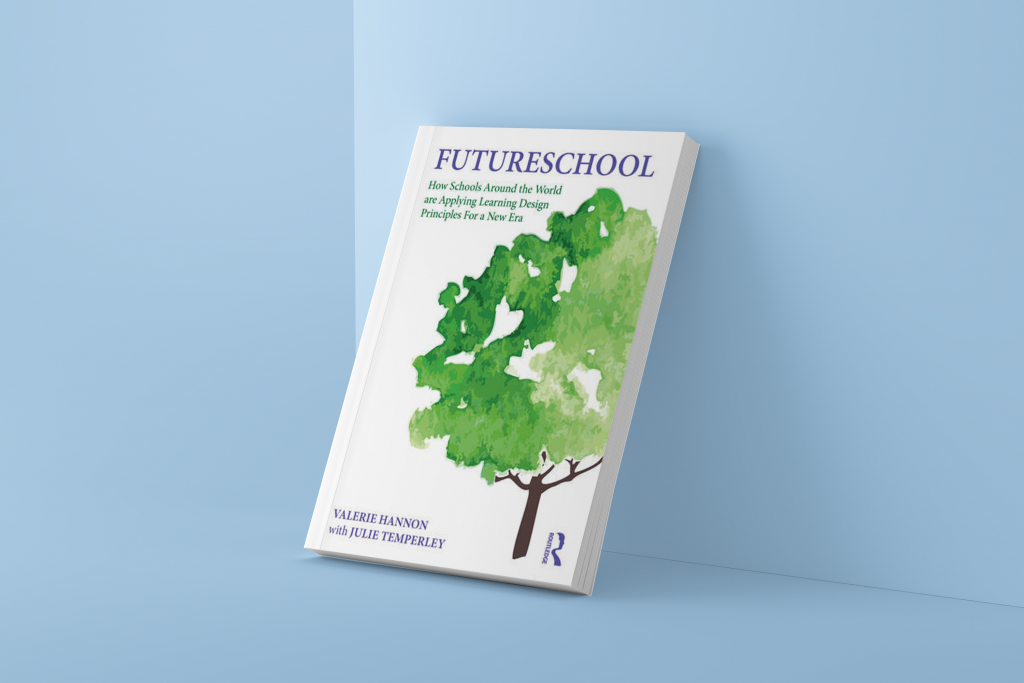
FutureSchool: How schools around the world are applying learning design principles for a new era by Valerie Hannon with Julie Temperley
Professional Prompt Questions
What most attracts you in this mini-case study?
What most challenges you?
Could you use this as a think-piece with your staff?

